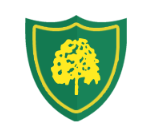Year 4RS
Our topic this half-term is Sounds and Vibrations.
As writers we will:
• Recognise the grammatical difference between plural and possessive ‘s’
• Indicate possession by using the possessive apostrophe with plural nouns
• Organise paragraphs around a theme
• Build a varied and rich vocabulary
• Propose changes to grammar and vocabulary to improve consistency, including the accurate use of pronouns in sentences
As mathematicians we will:
- Convert tenths from fractions to decimals.
- Convert hundredths from fractions to decimals.
- Divide a one-digit number by 10.
- Divide a two-digit number by 10.
- Divide a 1 or 2 digit number by 100.
- Make a whole with tenths and hundredths.
- Partition decimals.
- Compare and order decimals.
- Round decimals to the nearest whole number.
As Scientists we will:
- Describe how sounds are made.
- Describe how sounds are heard through different mediums.
- Explain the relationship between vibration strength and volume.
- Describe the relationship between volume and distance.
- Describe the pitch and how to change it.
- Explain how insulating materials can be used to muffle sound.
When working scientifically, pupils who are secure will be able to:
- To observe closely how different instruments create a sound.
- Research how whales and dolphins communicate underwater.
- Present results using a bar chart.
- Suggest which variables to measure and for how long.
- Design simple results tables.
- Identify when results or observations do not match predictions.
As musicians we will be learning Samba Drumming through Trafford's Music teaching.
As artists we will:
- explore the work of Heinz Edelmann
- learn about the effect of light
- learn about scale and proportion
- design a front cover for James and the Giant Peach in the style of Edelmann
- recreate a front cover using computer technology
As learners of RE we will be exploring the Big Question:
What does it mean to be a Hindu in Britain today?
We will:
- What is Hindu Dharma?
- How and why do many Hindus perform Puja?
- What is dharma? What can we learn from the story of King Yudhishtira?
- What does the Ramayana tell Hindus about dharma?
- How and why do many Hindus celebrate Diwali?
- Can I plan a Diwali celebration for my local community?
As Computer Technicians we will:
- Understand how to create a simple script in Scratch
- Add or change a sprite and prevent it from rotating
- Use decomposition to identify key features and understand how to decipher actions that make the quiz game work
- Understand what a variable is and how to use the ‘say’ and ‘ask’ blocks
- Create a variable and be able to use a variable to record a score
- Understand what a variable is and how it works within a program
As learners of PSHE we will be focusing on relationships. We will be exploring these key questions:
- How do I manage dares?
- What is pressure and how can I resist it?
- When might people feel jealous?
- When is it okay to break somebody’s confidence and tell their secret?
- What is acceptable physical contact?
- Why do friendships change? How can I manage my changing and conflicting friendships?
- Why do people make assumptions?
- What happens to information that is shared online?
- How is data used for advertising?
